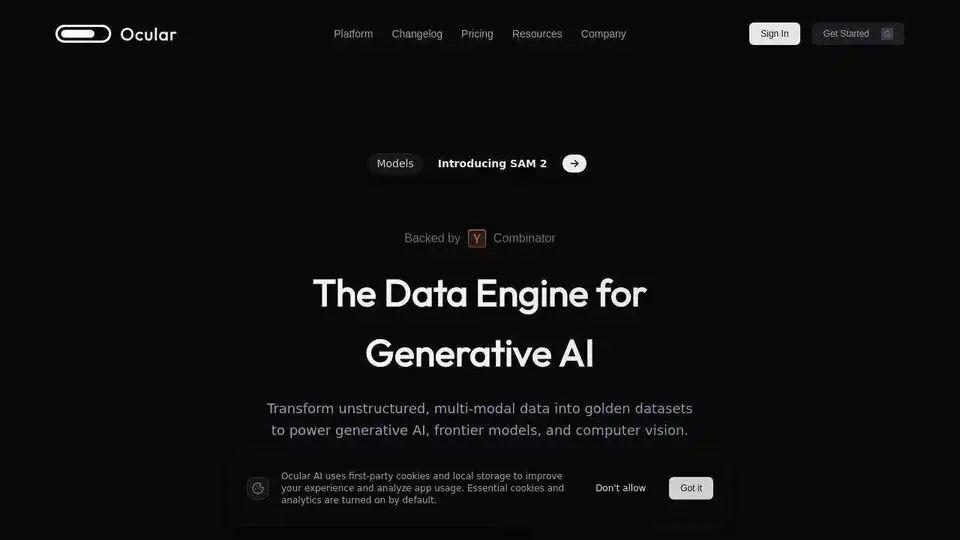
Ocular AI
Overview of Ocular AI
Ocular AI: The Multimodal Data Foundry for the AI Era
What is Ocular AI? Ocular AI is a platform designed to manage and leverage unstructured multimodal data for AI model training. It provides a unified, collaborative environment to ingest, curate, search, annotate, and train custom AI models on zettabytes of data. Ocular AI aims to be the single source of truth for all multimodal data, eliminating data silos and empowering teams to build more effective AI solutions.
Key Features and Functionality
Multimodal Data Lakehouse: Ocular AI centralizes data from cloud and local sources, supporting various data types, including images, videos, audio, and text. This allows for a comprehensive view of data and eliminates the need for separate data silos.
Data Catalog: The platform helps teams build and organize data catalogs, making multimodal data readily available for AI training. This includes features for curation, visualization, and organization of files and folders.
Advanced Multimodal Search: Users can search through videos, images, and audio using natural language queries. The platform’s advanced understanding allows for finding specific objects, moments, conversations, or scenes without manual tagging.
Data Annotation: Ocular AI provides tools to label multimodal data at scale, combining AI agents with human experts. This hybrid approach ensures high-quality labeled datasets, even for complex tasks.
Model Training and Evaluation: The platform offers access to GPUs for training, evaluation, and model comparison. It provides a Model Library to explore models and track their performance.
Ocular Bolt: This feature allows for applying expert human feedback (RLHF) for data labeling and model evaluation. Access specialized knowledge from medical doctors, engineers, legal professionals, and subject matter experts across diverse domains to get accurate annotations.
How does Ocular AI work?
Ocular AI works by providing a comprehensive set of tools and infrastructure to manage the entire lifecycle of multimodal data. Here’s a breakdown of the key steps:
- Data Ingestion: Data from various sources (AWS, GCP, Azure, Databricks, Snowflake, local storage) is ingested into the platform.
- Data Curation: The data is then curated, cataloged, and organized using the platform's data catalog features.
- Data Annotation: If needed, the data is annotated using a combination of AI agents and human experts.
- Model Training: AI models are trained on the curated data using managed GPU clusters.
- Model Evaluation: The performance of the models is evaluated using the platform's evaluation tools.
- Deployment: Trained models can be deployed for various applications.
Why is Ocular AI important?
Ocular AI addresses the challenges of managing and leveraging multimodal data for AI development. The platform centralizes data, facilitates collaboration, accelerates model training, and offers integrations with existing tech stacks. It empowers organizations to unlock the potential of unstructured data and build more powerful AI applications.
How to use Ocular AI?
To start using Ocular AI, users can sign in or book a demo on the Ocular AI website. The platform offers a range of resources including documentation, user forums, and a playground to get started. Ocular AI also offers an SDK in Python.
from ocular import Ocular
## Initialize the SDK with your API key
ocular = Ocular(api_key="api_key")
## Access a workspace
workspace = ocular.workspace("workspaceID")
## Get a project from the workspace
project = workspace.project("projectID")
## Get a version from the project
version = project.version("versionID")
## Get an export from the version
export = version.export("exportID")
## Download the export dataset
dataset_path = export.download()
Where can I use Ocular AI?
Ocular AI can be used across various industries and applications, including:
- Autonomous Driving: High-resolution urban imagery annotation and model training.
- Medical Imaging: Managing and annotating medical scans for AI-powered diagnostics.
- Video Analysis: Searching and understanding video content for various use cases.
Security
Ocular AI prioritizes security, employing enterprise-grade measures to protect data. The systems are built with security in mind and are constantly monitored and audited. All data stays on your existing infrastructure and data sources, even when connecting to external sources.
Best Alternative Tools to "Ocular AI"
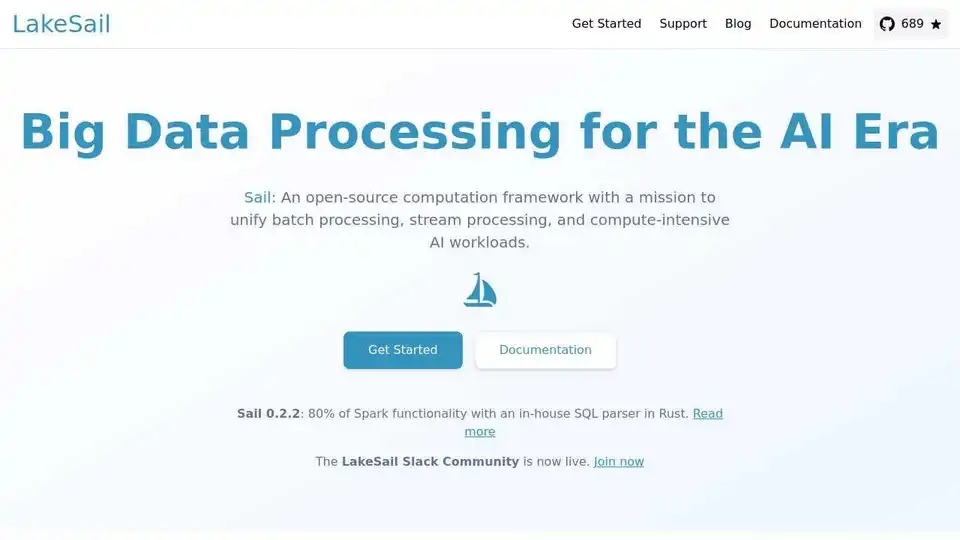
LakeSail is a unified multimodal distributed framework for batch, streaming, and AI workloads. A drop-in Apache Spark replacement built in Rust, delivering unmatched performance and lower costs.
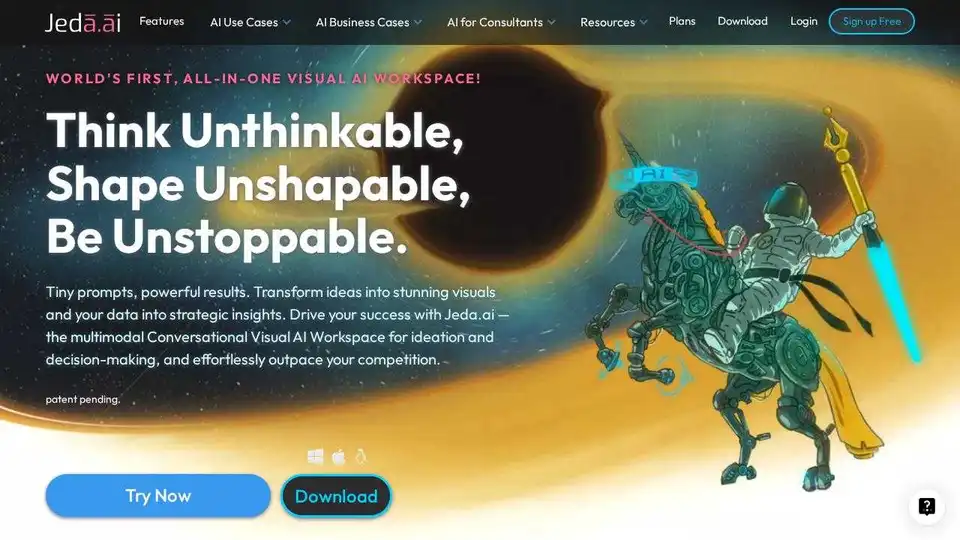
Jeda.ai is a multimodal generative visual AI workspace transforming ideas into stunning visuals and data into strategic insights, ideal for ideation and decision-making.
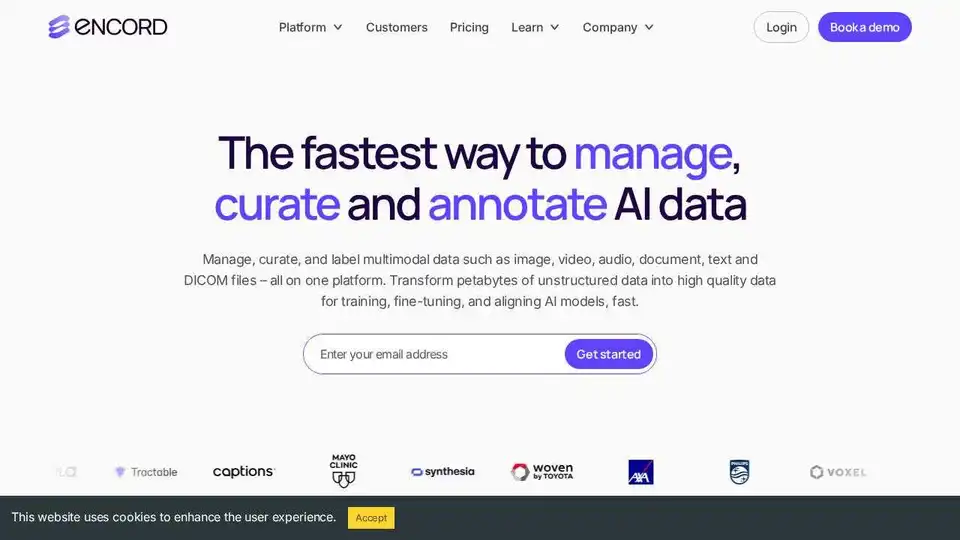
Encord is the AI data management platform. Accelerate and simplify multimodal data curation, annotation, and model eval to get better AI into production faster.
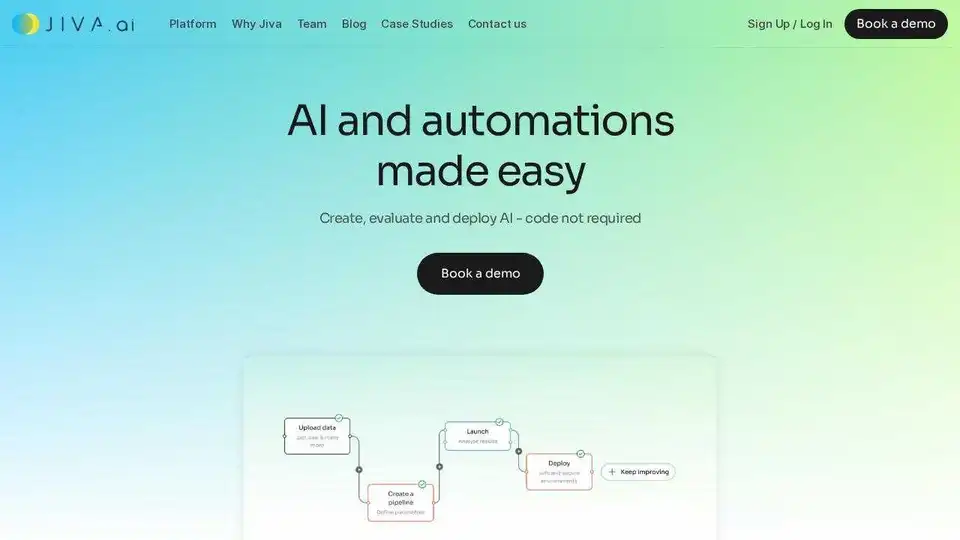
Jiva.ai: No-Code AI platform for creating, validating, and deploying multimodal AI. Simplifies AI for any data, any sector.
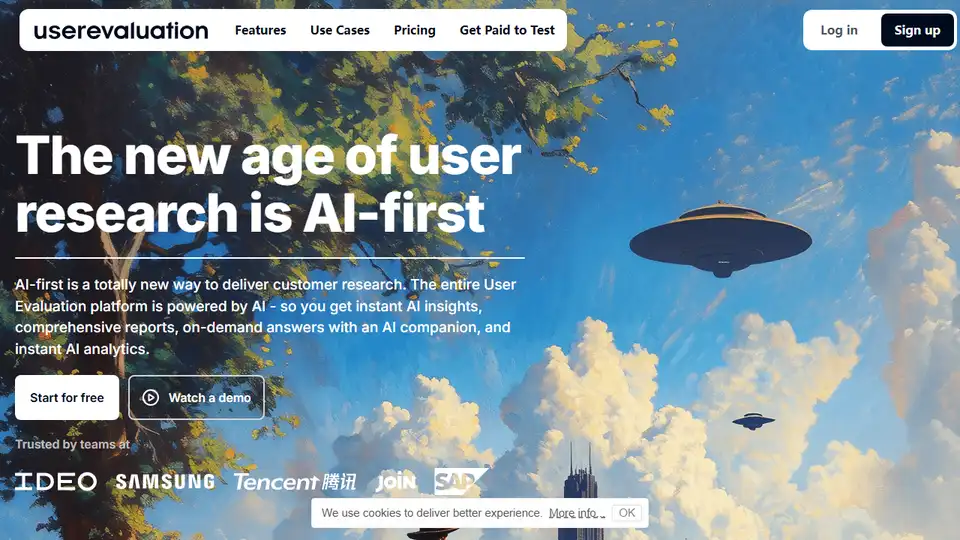
User Evaluation is an AI-first user research platform that transforms user understanding with AI-driven analysis, synthesis, and data security. Get instant, actionable insights from qualitative and quantitative data.

Discover Virtual Girlfriends, an AI-powered chat platform where you can engage in romantic conversations with customizable AI companions designed for fun and companionship.
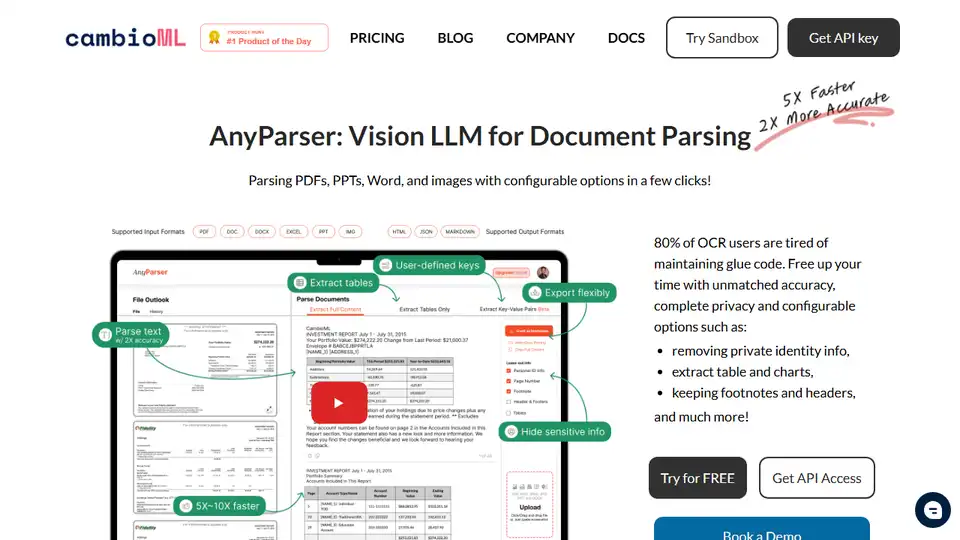
AnyParser: Vision LLM for Document Parsing. Accurately extracts text, tables, charts, and layout from PDFs, PPTs, images. Prioritizes privacy and enterprise integration.
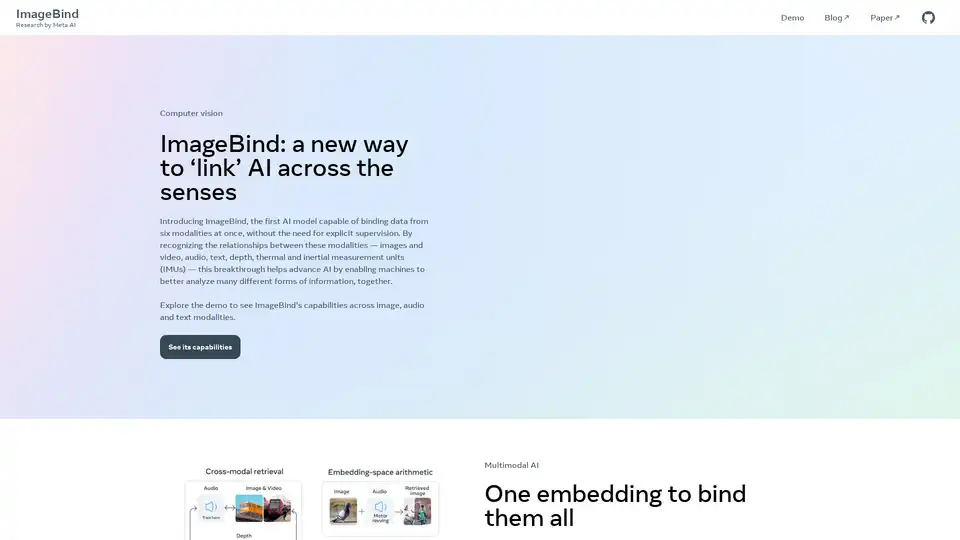
ImageBind by Meta AI is a novel multimodal AI model capable of binding data from six modalities: images, audio, text, depth, thermal, and IMUs, enabling advanced AI analysis.
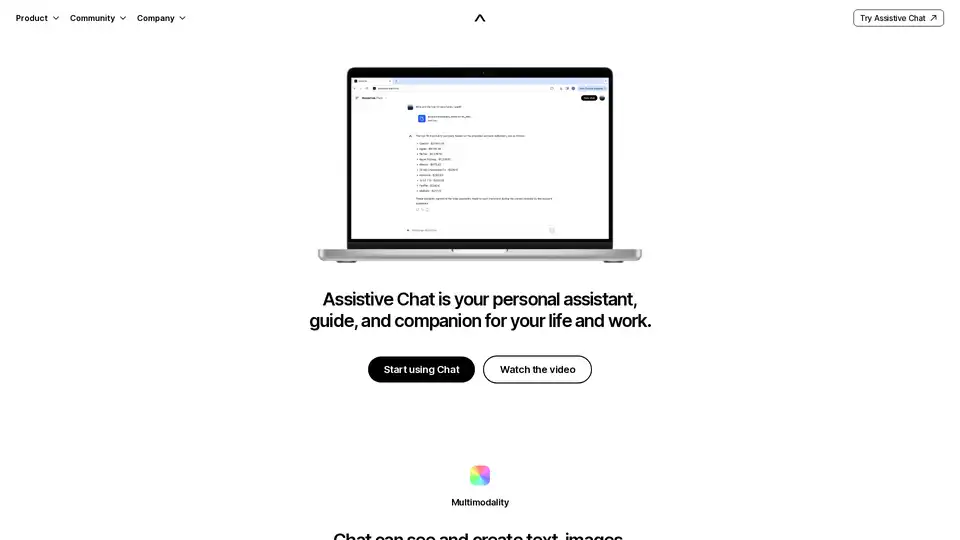
Assistive Chat is a multimodal AI assistant that can remember context, analyze data, browse the internet, and retrieve information from documents. Powered by GPT-4.
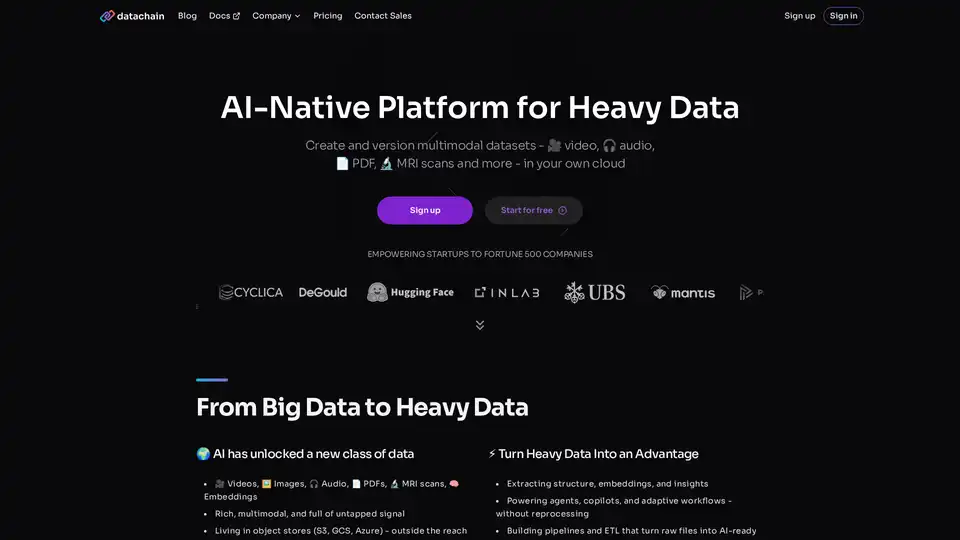
Discover DataChain, an AI-native platform for curating, enriching, and versioning multimodal datasets like videos, audio, PDFs, and MRI scans. It empowers teams with ETL pipelines, data lineage, and scalable processing without data duplication.

Roboto is an analytics engine designed for robotics and physical AI, enabling teams to efficiently search, transform, and analyze multimodal data from robots at scale, identify anomalies, and automate analysis.
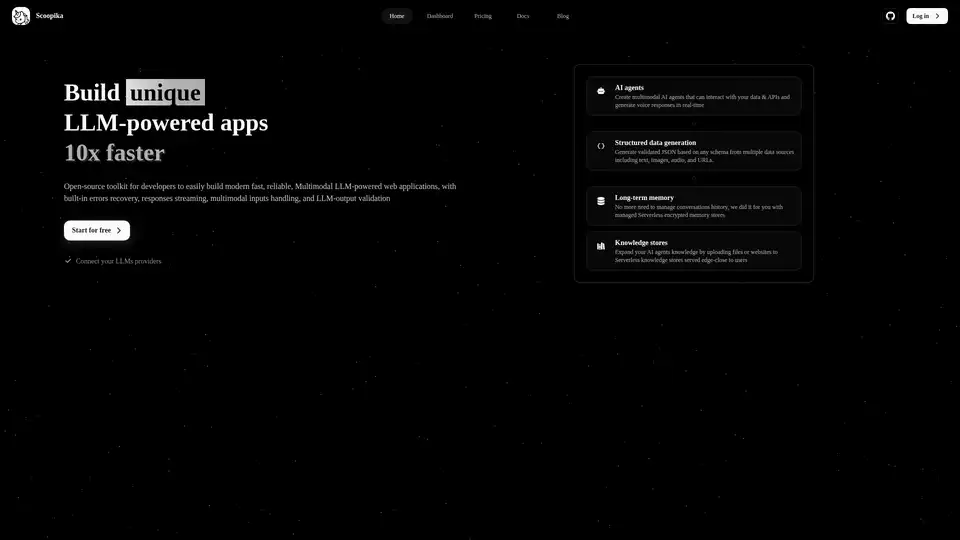
Scoopika is an open-source platform for building multimodal AI apps with LLMs and AI agents, featuring error recovery, streaming, and data validation.
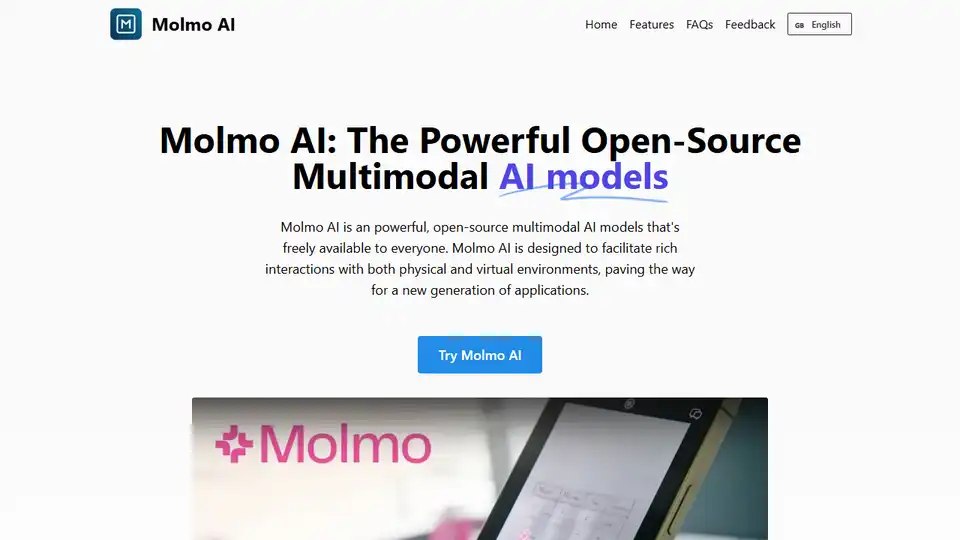
Molmo AI is a powerful open-source multimodal AI model designed for rich interactions with physical and virtual environments, outperforming larger models in benchmarks.
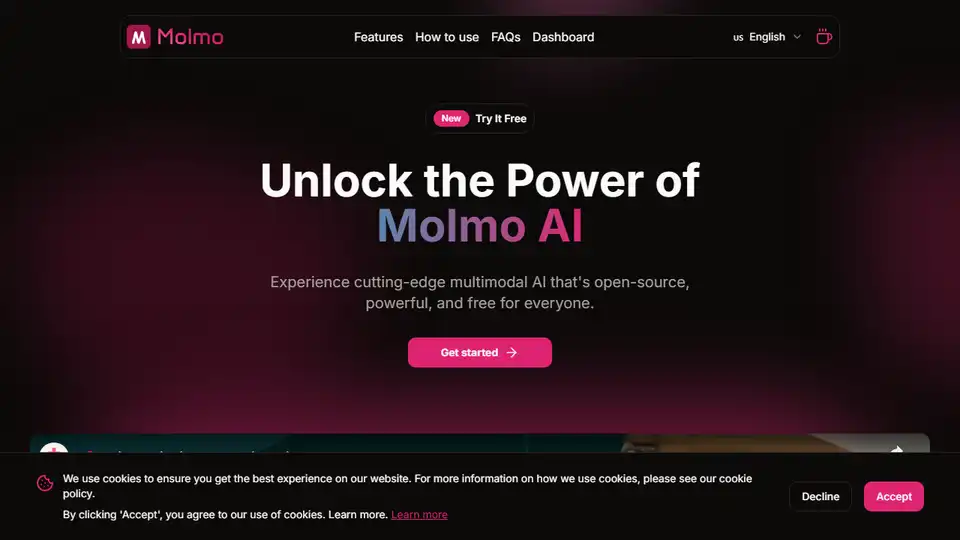
Discover Molmo AI, the state-of-the-art open-source multimodal AI model. Powerful, free, and easy to use for image processing, text analysis, and more.
